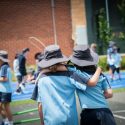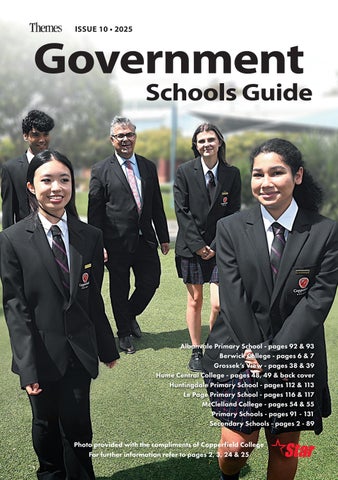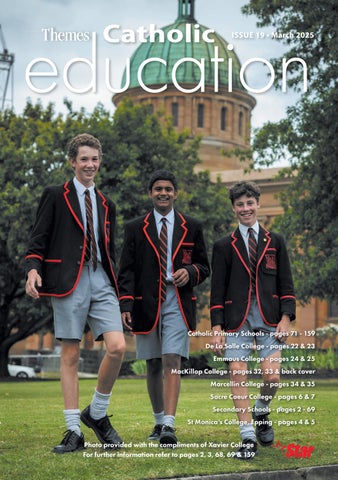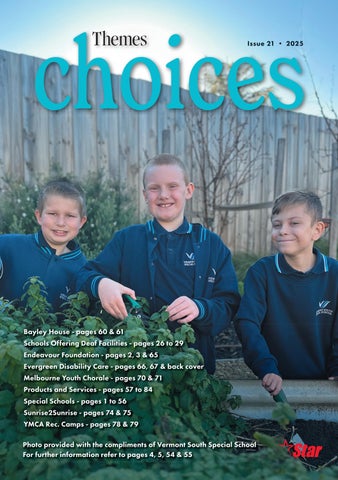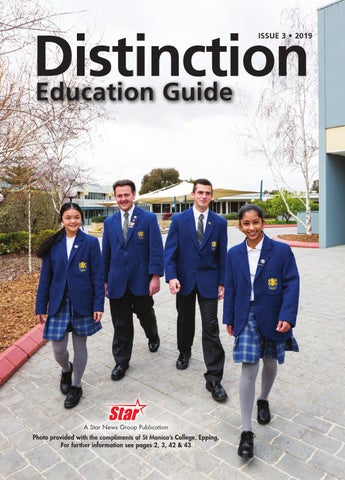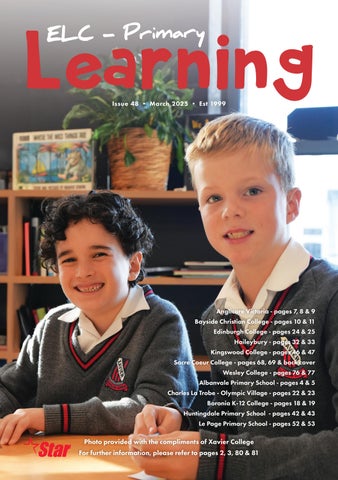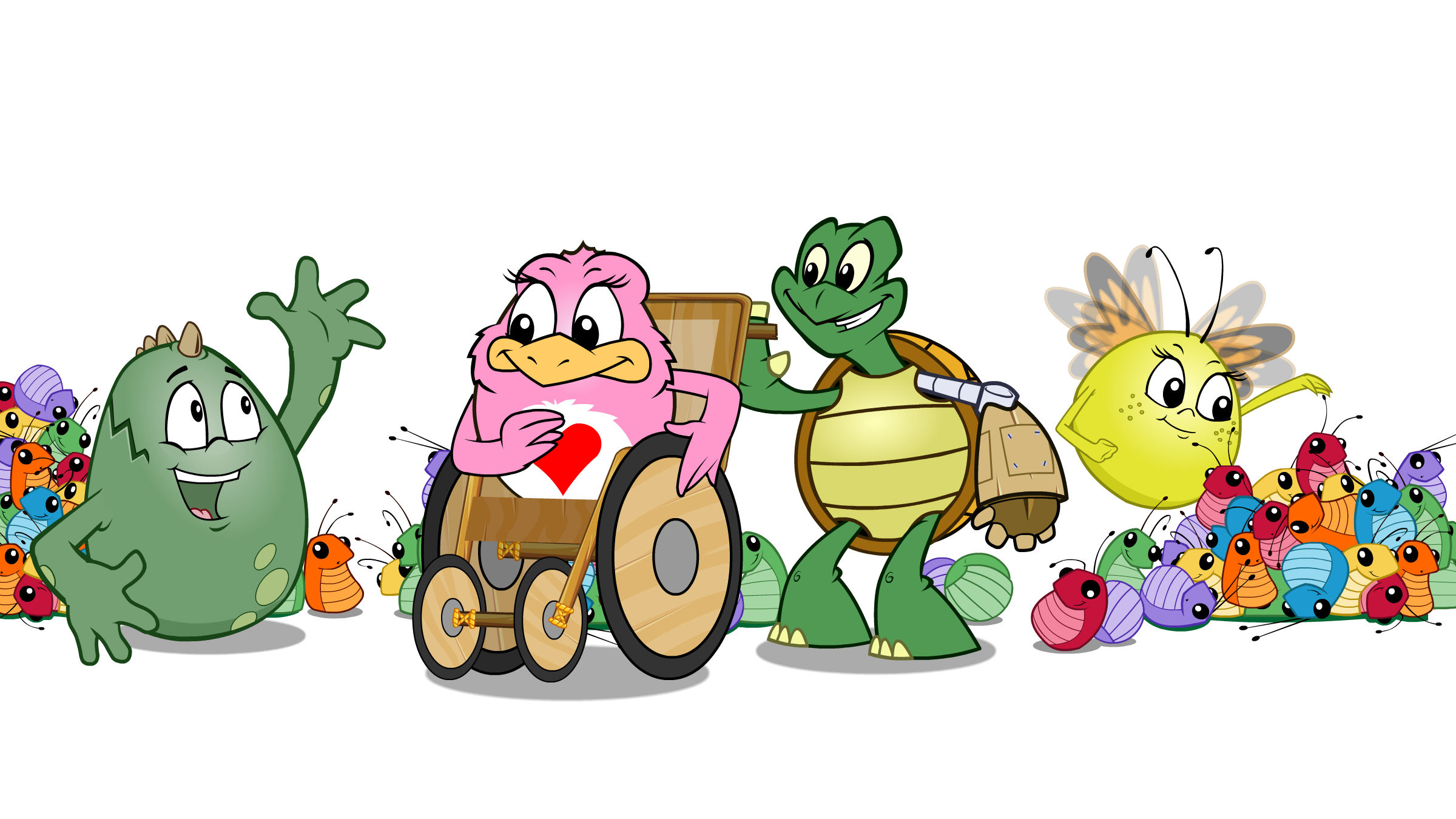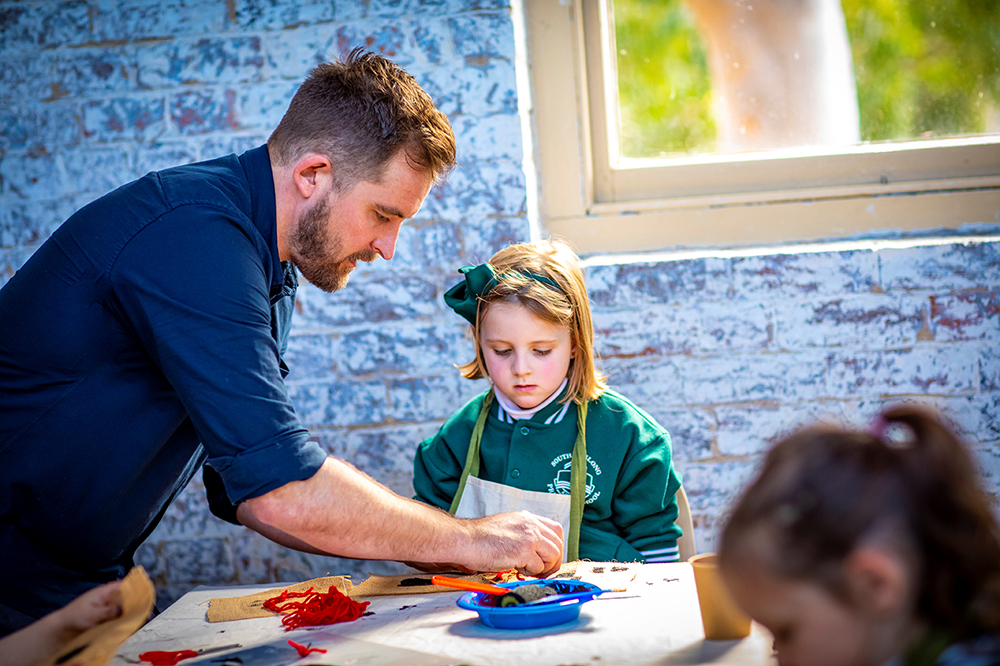Catholic Education Melbourne Executive Director Stephen Elder says the greatest compliment he has ever received was overhearing one parent tell another: “If you want your child to be truly happy, then you should send them to a Catholic school.”
“Our schools encourage students to learn through enquiry, and teachers are encouraged to support students in their search for understanding and meaning,” Mr Elder explains.
“We want our students to explore the big questions in life with a clear vision of what is good about themselves, their relationships and the world in which they live.”
This emphasis on the whole student is what sets Catholic schools apart.
Catholic school parents say their children are genuinely cared for and understood by their teachers, creating a sense of belonging that enables them to discover the gifts they have been given and develop them to the best of their abilities.
Sarah, whose daughter moved from the government system last year, says “You get the feeling in the Catholic system that your child is a real individual, not just a name on a roll, and that you’re part of a far broader community, a real family.”
Teacher Liam Buckley explains this approach well. “The thing I like about working in the Catholic school environment is that we genuinely put the student’s wellbeing at the heart of everything we do,” he says.
“School for our students is not just about the learning of content but the development of the person as a whole, which underpins what a Catholic education should be about.”
Mr Elder says Catholic schools work hard to discover what matters to each student and identify what they want from life and what will give them joy.
“Without a strong sense of self, successful learning and achievement is difficult to attain. Self-regard and self-esteem are powerful motivators in all walks of life and it’s no different when it comes to education,” he explains.
“Understanding who you are, what you want and how best to get there is part of a contemporary education. With every choice we nurture a love of learning and a desire for knowledge because it’s from that starting point that the best results follow.”
GROWTH AND SUCCESS
Academic results, wellbeing reports, enrolment figures and affordability all point to a flourishing future for Catholic education in Victoria.
This year over 210,000 students – or close to one in four Victorian school children – will enjoy a Catholic education in one of nearly 500 schools state-wide.
Continued academic achievement is one of the key reasons for the appeal of a Catholic education.
University of Melbourne research on the “value add” performance of non-government education has found that Catholic schools add an average of six points to tertiary admission ranks, or ATAR scores, at the career defining end of a student’s school journey.
Catholic schools have continued to shine in Victorian Certificate of Education results, performing above the state average and showing significant improvements in quality.
The average median score achieved by Catholic school students in last year’s VCE results came in at almost two points higher that the state average, while the number of schools where all students satisfactorily completed the VCE increased by well over 10 per cent.
A major Australian Bureau of Statistics survey has found that three out of four Catholic secondary students will go on to university.
Curtin University research released last year shows a Catholic pays real-world dividends. It has found that Australians who attended Catholic schools enjoy a wage premium of around 10 per cent.
But academic achievement is only one part of a Catholic education. The Curtin University work also singles out for special mention findings that graduates from Catholic schools enjoy higher levels of life satisfaction and happiness.
“The stream of active contributors, good citizens and well-adjusted young people that graduate from our schools each year reinforce our philosophy and direction,” Catholic Education Melbourne Executive Director Stephen Elder says.
The ABS work also shows that Catholic students are far less likely to be bullied than those attending government schools.
Mr Elder says Catholic Education Melbourne is striving to be a leader in child safety.
“We believe that all individuals deserve inherent human dignity as beings created in God’s image,” he explains. “Many of the wellbeing programs within our schools live out the Gospel values, faith and shared belief that we should all aspire to a common good.
“We will always aim at creating zero-bullying environments based on a genuine concern for others.”
Parents also feel Catholic schools represent value for money, speaking of their affordability.
Mr Elder says all these factors are leading to a booming demand for Catholic schools.
More than half a dozen new schools are planned to open by the start of the 2020 school year in the Melbourne-Geelong area: primary schools in Craigieburn West, Wallan East, Torquay North, Wollert, Sunbury and Bannockburn and secondary colleges in Armstrong Creek and Wyndham Vale.
There are also proposals for new schools in Melton South, Werribee, Bacchus Marsh, Greenvale, Merrifield West, Doreen West and Docklands/Fishermans Bend in the first half of next decade.

